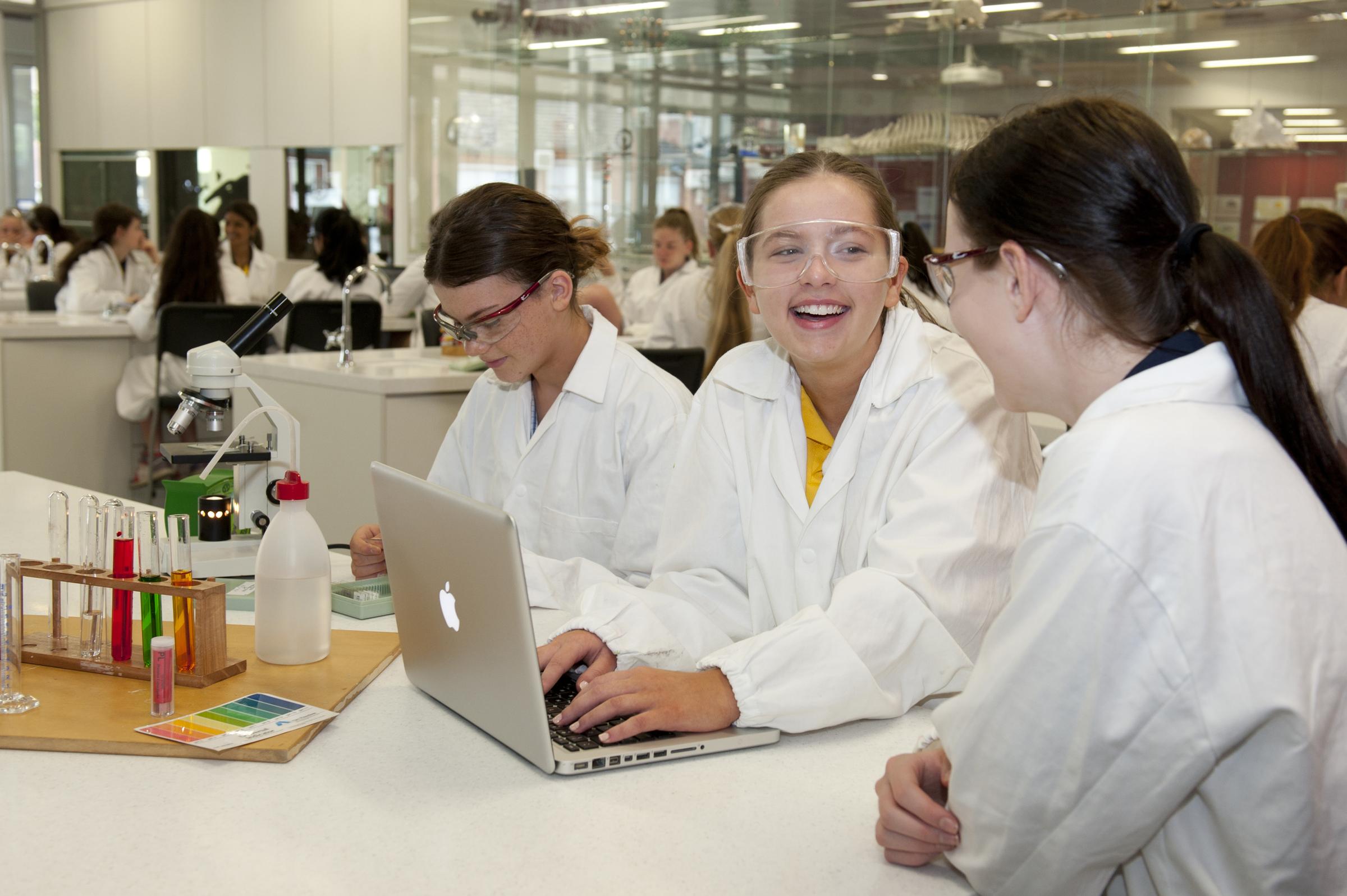Learning & Teaching

Learning News
Congratulations to all students for the effort they have put into their studies in recent weeks. As Term 1 comes to an end students have been involved in a number of assessments of student learning.
Assessment and reporting are vital processes which provide information about what students know and can do, and to make recommendations for their future learning. Assessment is an integral part of the teaching and learning program at Mount St. Joseph Girls' College.
Student assessment may take a variety of formats depending on the nature of the subject. Subject assessment tasks seek to draw out the students’ knowledge, process capabilities and skills rather than simply focusing on recall of information out of context. Tasks, depending on the subject, may include a test, an extended assignment, oral or media presentation, research task, performance or practical task, or an experimental or investigative task. Students receive feedback through rubrics outlining the criteria assessing the task or unit of work.
Formative assessment is used to monitor learning progress during a learning sequence. It provides continuous feedback to teachers and students, which enables them to monitor progress and identify and address needs in learning.
Summative assessment seeks to establish the level of achievement attained by a student, and typically occurs at the end of a learning sequence, course or unit. The main purpose of summative assessment is to establish levels of achievement for reporting.
In 2017 reporting and feedback to students and parents and carers will occur in various forms:
- Interim reports – Term 1 and Term 3
- Parent/Student/Teacher Interviews – Monday, May 1 (4-8pm) and Wednesday, May 3 (4-8pm)
- Semester 1 Reports – End of Term 2
- Parent/Student/Teacher Interviews –Term 3
- Semester 2 Reports – End of Term 4
One of the forms of reporting used at Mount St. Joseph Girls' College is the Parent/Student/Teacher Interviews. The interviews provide opportunities for students, parents and teachers to discuss an individual student’s progress and to work together to develop strategies to enhance learning.
To facilitate ease of movement, all interviews are held in the MacKillop Centre. Interviews are usually only five minutes in length so if a longer appointment is required, the five-minute interview may be used to identify a suitable alternative time to meet with a specific teacher. Students are encouraged to accompany their parents to the interviews to discuss their learning.
Please note the following dates:
April 18
Interim Reports available online for Parents/Carers – 4.00pm
(Instructions and login details will be emailed to Parents/Carers)
April 18
PST Interviews Online Bookings system open to parents – 4.00pm
(Instructions and login details will be emailed to Parents/Carers)
May 1
PST Interviews Year 7 to 12 (4pm-8pm)
May 3
PST Interviews Year 7 to 12 (4pm-8pm)
Joanna De Bono
Deputy Principal - Learning & Teaching
Learning Intentions
Having greater focus on the purpose of a lesson is a highly effective way to engage students in their learning. Over the course of term one, staff have been introducing Learning Intentions into every lesson to help students have more clarity on what is ahead of them.
Learning intentions can take many forms but essentially they all tell the student what they will know, understand or be able to do by the end of a lesson. Focusing on the learning - the skills, knowledge and understanding - rather than on the context has the advantage of making it more likely that students will be able to transfer their learning from one situation to the next.
Some examples of the learning intentions seen on whiteboards across the school include:
To revise the link between atomic structure and ionic compounds - Year 12 Chemistry
To understand the plot and characters of the film ‘The Giver’ and how the film shows dystopian characteristics - Year 9 English
To explain the belief of ultimate reality as expressed in the Roman Catholic tradition - Year 12 Religion and Society
Not only will students have a better understanding of the purpose of each lesson, but hopefully when you ask them at the end of the day ‘What did you learn at school today?" they may have a better answer than before.
Adam Gonzalez
Director - Innovation & Pedagogy
